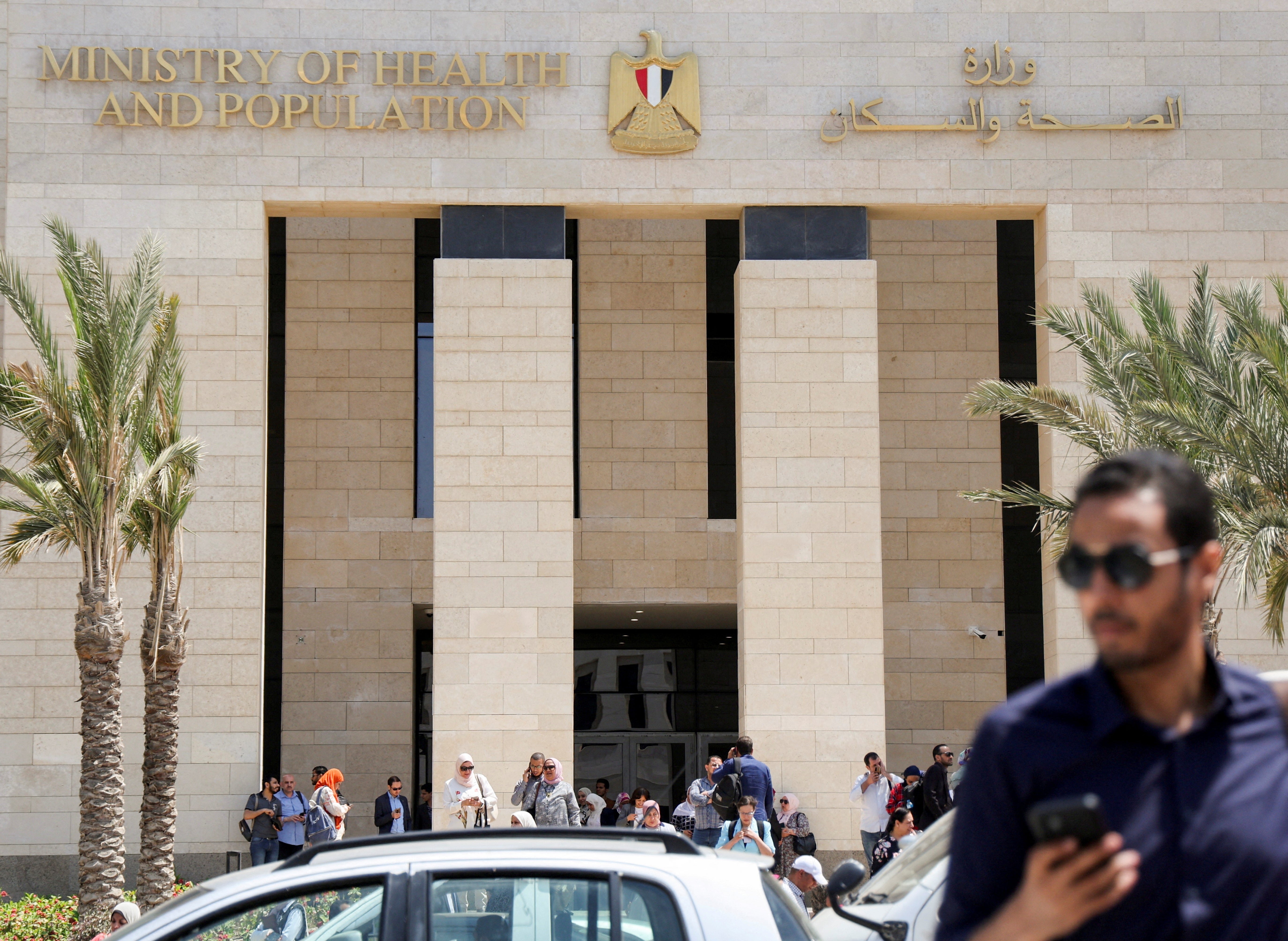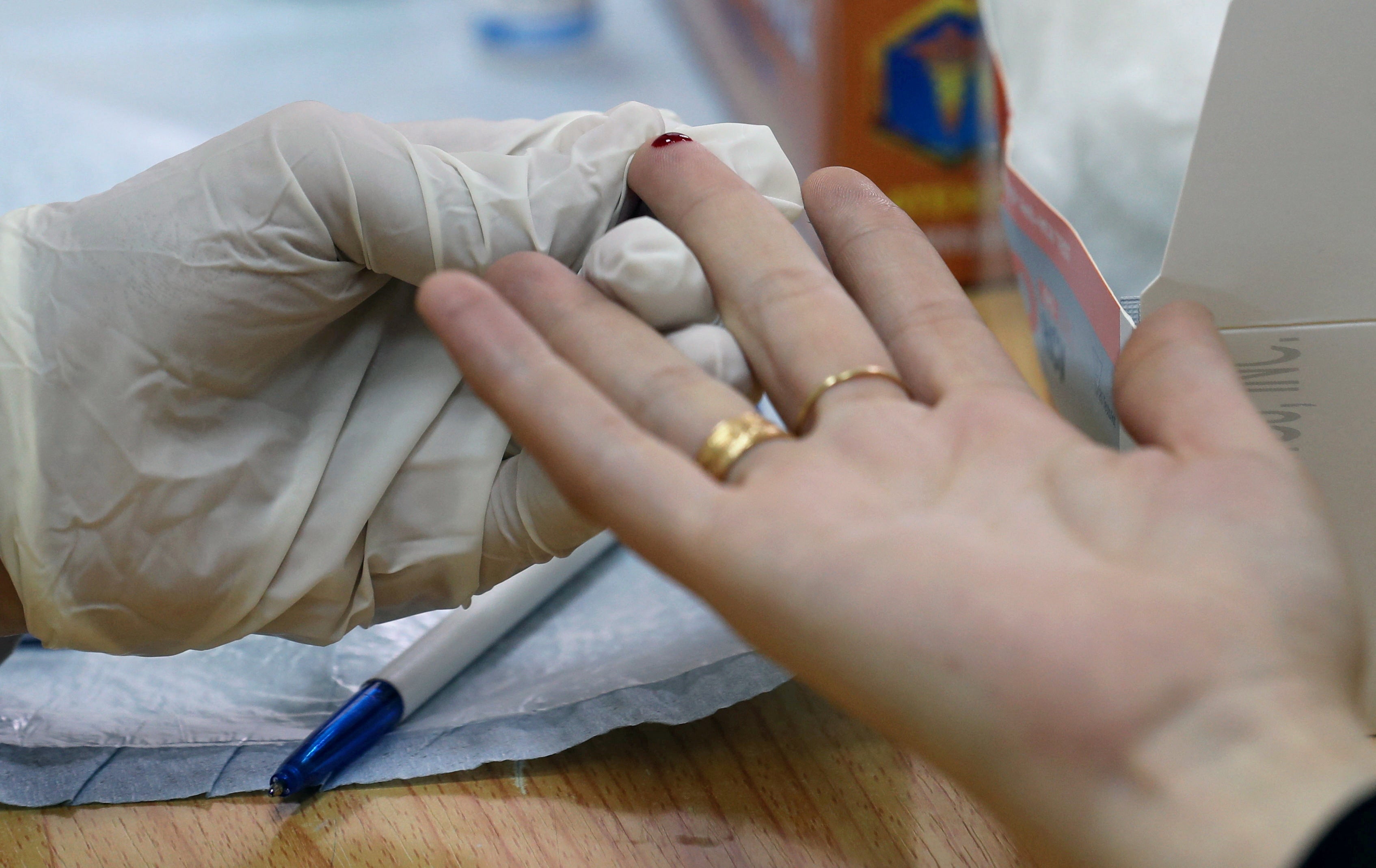Fears new law will force doctors to leave Egypt
Medical professionals say the real issue is underfunding

Your support helps us to tell the story
From reproductive rights to climate change to Big Tech, The Independent is on the ground when the story is developing. Whether it's investigating the financials of Elon Musk's pro-Trump PAC or producing our latest documentary, 'The A Word', which shines a light on the American women fighting for reproductive rights, we know how important it is to parse out the facts from the messaging.
At such a critical moment in US history, we need reporters on the ground. Your donation allows us to keep sending journalists to speak to both sides of the story.
The Independent is trusted by Americans across the entire political spectrum. And unlike many other quality news outlets, we choose not to lock Americans out of our reporting and analysis with paywalls. We believe quality journalism should be available to everyone, paid for by those who can afford it.
Your support makes all the difference.Cairo’s hospitals are facing a crisis, and a new law is set to make it even worse.
Underfunded and overburdened, doctors are making difficult choices, often forced to rely on their clinical judgment in the absence of functioning equipment.
And now the whole of Egypt could face a doctor exodus.
Late at night in a Cairo public hospital, a young doctor treating a patient in severe pain found the CT scanner was broken, so relying on his clinical judgment alone, he performed an emergency appendectomy.
“It was a calculated risk,” he said. “But under the new malpractice law ...I wouldn’t have taken that chance. I would have discharged the patient and waited for him to seek a CT scan elsewhere - even if it meant the patient’s appendix ruptured.”
This scenario, recounted anonymously, underscores the fears many Egyptian doctors have voiced over a draft medical malpractice law that intends to address patients’ complaints about poor treatment by imposing punitive measures, including fines and the detention of doctors who give substandard care.
However, medical professionals say the real issue is underfunding and inefficiency in Egypt’s healthcare system and that the malpractice law could harm an already strained system by driving doctors abroad or out of the profession entirely.
“The quality of Egypt’s healthcare system has been declining over decades,” said Hisham Ezzat, an anesthesiologist who is now practising in Germany.
“Many Egyptian hospitals lack the tools and equipment deemed necessary abroad, so doctors are trained to work with whatever they have to save their patients.”

Public hospitals often operate on shoestring budgets, with doctors reporting out-of-pocket payments for essential supplies like gloves and sutures.
Rather than improving matters, “the new law in this current form will establish a rivalry between doctors and patients instead of trying to build trust between them,” said a source at the Egyptian Medical Syndicate, the main doctors’ association.
Factbox: What is the new law
At a press conference this month, Prime Minister Mostafa Madbouly said the draft malpractice law, which lawmakers are to vote on within weeks, aims to balance the rights of doctors and patients and address long-standing grievances.
Egyptian doctors are currently prosecuted under the penal code, which is a blunt instrument when it comes to medical errors, the health ministry’s spokesperson, Hossam Abdel Ghaffar, said.
“This law seeks to change that by establishing a new legislation focused on the doctor-patient relationship... It will improve the healthcare system, improve the practicing environment, and keep doctors in the country,” he added.
But some doctors fear it could have the opposite effect, pitting patients against doctors in an already fraught environment and accelerating the exodus of doctors from Egypt.
Perceptions of poor care have fueled a rise in assaults on healthcare workers, said Dr. Ibrahim al Zayat, a member of the syndicate’s board who recently resigned in protest of the law.
“The most common complaint at hospitals is not finding a bed for a patient,” Zayat said. “Patients’ families take their anger out on the doctor.”
Reports of abuse are common. In November, for example, local media reported an assault on an ICU doctor by a patient’s family at a Cairo hospital.
Some patients think a change in the law is needed. Om Ahmed, 48, had a routine procedure at a private hospital “only to spend days in pain and discover the operation accidentally caused a problem with the bile duct. I had to undergo a second surgery.”
“Errors I could understand. We are human beings. But that was negligence so (the doctor) should have been punished,” she said.
Egypt faces a severe shortage of healthcare workers, with more doctors who have trained in the country working abroad than at home, according to the Medical Syndicate.
“Young doctors start preparing to leave Egypt from their first day in medical school,” said Zayat.
Egypt has just 12.8 physicians per 10,000 population, according to official statistics, compared to the global density of physicians of 17.2 per 10,000 people, in 2022.
The situation is so critical that the health directorate in the coastal governorate of Damietta recently called on retired doctors to return to work so it could provide safe services.
“(Ten years ago) we used to see around six doctors resigning every day. Now, we see 12. That is one doctor resigning every two hours,” Zayat said, adding that during a visit last year to a major hospital in London, he met 124 resident Egyptian doctors.
The International Monetary Fund (IMF), which is lending Egypt $8 billion, described its healthcare infrastructure as “below other emerging markets” and repeatedly called for structural reforms, including in healthcare, to spur growth.
“The law is a distraction from underfunding and inadequate training,” said a gastroenterologist who is now working in Saudi Arabia and earning 27 times the salary of Egypt’s lowest paid consultants of around 12,000 Egyptian pounds ($237) per month.
“We’re expected to work miracles with broken equipment and no resources. It’s no surprise so many of us leave.”
Physicians who remain say they have begun shifting to low-risk specialties to avoid potential liability under the new law.
“I switched from surgery to clinical pathology just to avoid the risks and work pressure,” said one physician at a public hospital.
“Why take chances when the system doesn’t protect us?”
The new legislation fails to distinguish between “expected complications, minor errors, and gross negligence” exposing doctors to penalties even for unavoidable outcomes, said Dr. Tarek Mansour, another former Medical Syndicate board member.
Mansour, Zayat and three others resigned from the syndicate after its head effectively cancelled a general assembly intended to debate the law, after coming under pressure from security officials and lawmakers, Mansour and another syndicate source said.
A parliamentary debate on the legislation has been postponed to avoid potential protests coinciding with the 14th anniversary of Egypt’s Jan. 25 uprising, syndicate sources said, but should come before lawmakers in a matter of weeks.
The syndicate’s head, Dr. Osama Abdel Hay, said in a statement that doctors demand a clear distinction between negligence that could lead to prosecution and errors for which compensation is paid to the patient, rather than a fine to the state.
But even before the law is passed, the debate has sapped doctors’ morale.
“It’s no longer about healing; it’s about survival,” said one young doctor, who said she is now seriously considering leaving the country.
Join our commenting forum
Join thought-provoking conversations, follow other Independent readers and see their replies
Comments